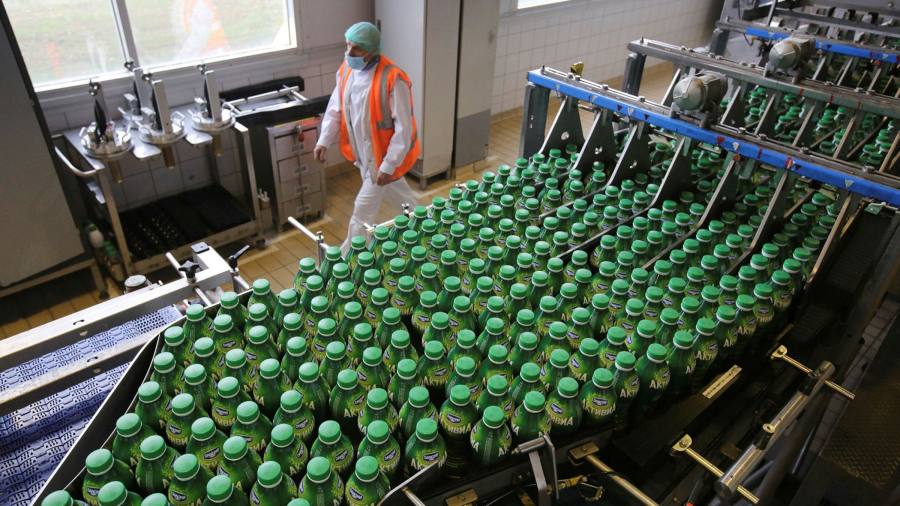[ad_1]
Thousands of European manufacturers have been hit by a surge in the price of polymer resins used to make plastic, which has risen to six-year highs because of strong demand and a slump in supplies.
If prices remain elevated, extra costs may be passed to supermarkets, other retailers and consumers as margins of companies that convert plastic resins into a variety of household and industrial products suffer.
Polyethylene and polypropylene prices, the most commonly used plastic resins, have risen 25 per cent since December to €1,500 per tonne, the highest level since 2015, according to market information service ICIS.
Liquidity in the market has also dried up because supplies are so low, which is having a “devastating effect†on the industry, said Ron Marsh, head of Polymers for Europe Alliance.
“There are plants out of material and there are plants, which had reasonable stocks, that are going to run out pretty shortly,†Marsh said.
Renato Zelcher, chief executive at Italian polyethylene manufacturer Crocco, underlined the crisis facing the industry when he warned his company’s results would be “a disaster†because of the increases.
There are about 50,000 small to medium plastic converter companies in Europe, which turn several types of plastic resin into food packaging products, plastic bags, plastic films, containers and bottles.
Shortages of giant plastic bags, used to mix pharmaceutical ingredients, are also threatening the rollout of Covid-19 shots around the world in another example of the importance of the synthetic material.
Plastics prices in Europe were among the lowest in the world for much of 2020, but have shot up in recent months on the back of shortages and strong demand.
A rebound in crude oil, which the plastic resins are derived from, also added to the upward pressure on prices.
Long-term contracts mean manufacturers are yet to pass on the higher costs, but Zelcher warned “eventually our customers will notice higher prices. If we don’t do that, we will go bankruptâ€.
“The pressure a few months of rising prices puts on the margins for [plastic] converters is huge,†said Marsh, of industry group Polymers for Europe Alliance.
Shortages of plastic resins has also left inventories worryingly low.
“If tight supply lasts for another month,†then supermarkets could run out of food packaging products, Marsh added.
Products that have experienced an increase in demand include polymer-based hygiene items, such as gowns and face masks, as well as scores of online goods.
US polyethylene exports to Europe fell off dramatically during the autumn following a damaging hurricane season in September that hit refineries. A lack of shipping containers has further slowed imports into Europe.
The supply crunch intensified at the end of the year as demand in Europe, which relies heavily on US imports, started to pick up, said ICIS.
European manufacturers were “buying only what was needed†early in the autumn, said Lorenzo Meazza, analyst at ICIS, “as there was uncertainty about when the next lockdown would beâ€.
“When we reached November and December, demand in Europe started to improve,†he continued. “But limited supply meant that suddenly Europe was really short of polyethylene.â€
[ad_2]
Source link






